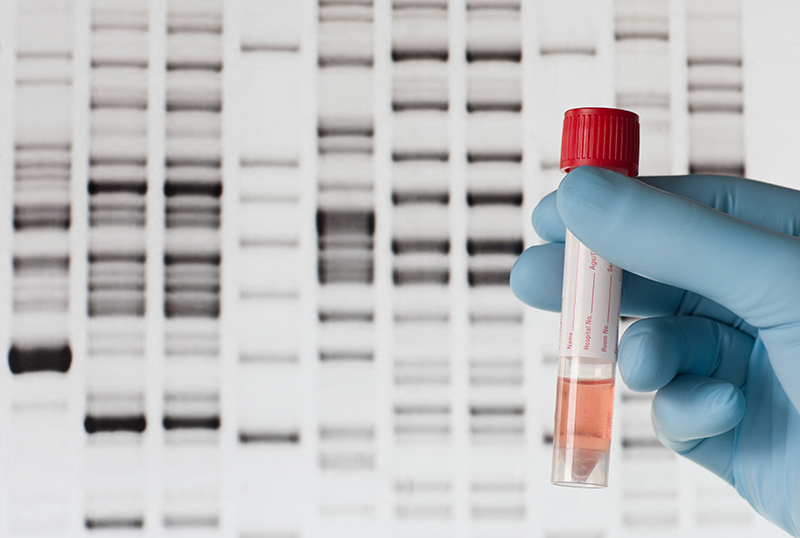
The U.S. Department of Justice (DOJ) has announced that, at long last, it is publishing regulations that will permit agencies of the Department of Homeland Security (DHS) to systemically collect DNA samples from the individuals that it arrests and detains.
As indicated in the DOJ press release announcing the imminent publication of the regulations:
The DNA Fingerprint Act provided the Attorney General with the exclusive authority to draft regulations to authorize and direct any federal agency to "collect DNA samples from individuals who are arrested, facing charges, or convicted or from non-United States persons who are detained under the authority of the United States." 24 U.S.C. § 40702(a)(1)(A). [Emphasis added; legal citation in the original.]
The release goes on to say:
In advance of this rule change, the Department of Justice and DHS have been working collaboratively to conduct a pilot program for the collection of DNA from non-U.S. persons detained by DHS. As with all other DNA samples that federal agencies collect under the authority of the bipartisan DNA Fingerprint Act, the DNA samples that DHS collects from its non-United States person detainees will be entered into the Federal Bureau of Investigation's Combined DNA Index System (CODIS). The FBI's laboratory has the capacity to handle the increased input from DHS, and its capabilities can be scaled up to meet additional capacity.
This development is very welcome news, because it will give DHS's immigration enforcement entities (primarily Customs and Border Protection (CBP) and Immigration and Customs Enforcement (ICE)) a powerful new tool to combat fraud and human trafficking. It will be particularly useful in aiding detection of alien adults who use children in their illegal border crossings to obtain prompt release because they claim to be a "family unit" when in fact no familial relationship exists.
But here's the curious thing: the DNA Fingerprint Act was enacted into law in 2005 — 15 years ago, but no regulation was ever promulgated. What this means in terms of missed opportunities is shown in the table below.
Immigration Apprehensions
|
|
| 2006 | 1,206,100 |
| 2007 | 960,756 |
| 2008 | 796,568 |
| 2009 | 613,013 |
| 2010 | 796,587 |
| 2011 | 678,606 |
| 2012 | 671,327 |
| 2013 | 662,483 |
| 2014 | 679,996 |
| 2015 | 462,388 |
| 2016 | 530,250 |
| 2017 | 461,540 |
| 2018 | 572,566 |
| 2019 | 994,607 |
| Total | 10,086,787 |
|
Source: DHS Office of Immigration Statistics. |
|
As can be seen, if a rule had been published in a timely manner, DHS could have obtained DNA samples from over 10 million aliens (though some would have been duplicates), a significant portion of whom may well have been multiple illegal entrants to the United States and, at the same time, criminals whose DNA might have revealed a connection to any number of serious violent or sexual crimes perpetrated nationwide.
The obvious question that comes to mind is: Why did it take so long to promulgate regulations allowing DHS and its components to begin systematically collecting DNA samples from the aliens it apprehends and detains?
But there is another, less-obvious question that ought to be asked. Why did the law not specify the right to collect DNA samples from alien applicants for benefits? Given the prominence of chain migration in our immigration laws and policies, the utility is self-evident. Relationship fraud (false claims to be someone's mother or father, son or daughter, brother or sister) is rampant in immigration benefits processes, and requiring DNA test would resolve, simply and conclusively, any lingering doubts about the validity of such relationships.
Having said that, I believe that U.S. Citizenship and Immigration Services still retains the legal ability to ask for DNA testing in questionable cases, for the simple reason that the law places the burden on applicants to establish their right to a benefit. Where for some reason a relationship that would accord a benefit has been placed in doubt, it seems reasonable that USCIS examiners would ask that the petitioner and beneficiary agree to DNA testing, and if they refuse, then to deny the petition/application, pending further proof that the relationship claimed is valid.
Even so, how much better it would have been had Congress added this one additional proviso to the DNA Fingerprint Act.
